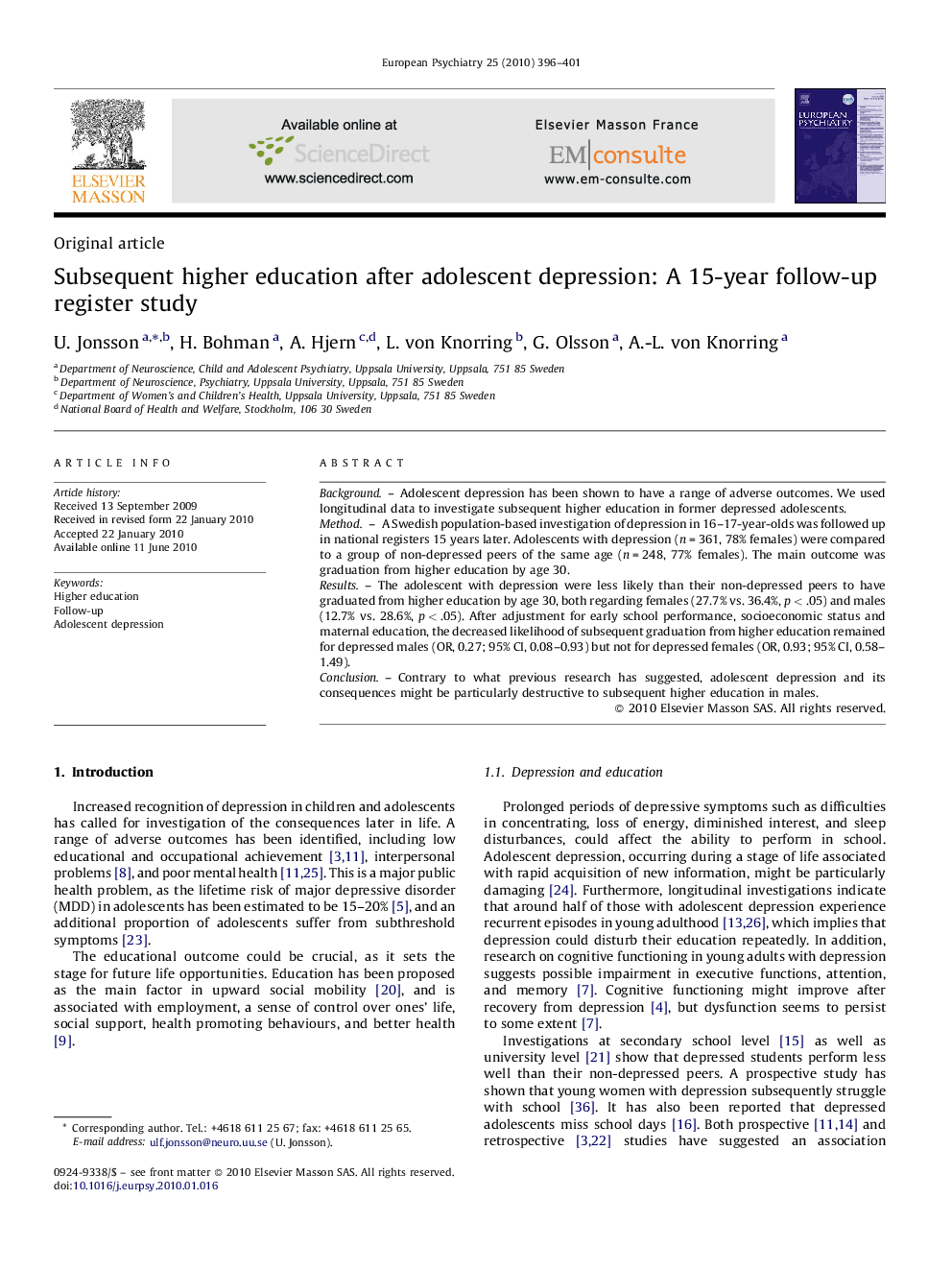| Article ID | Journal | Published Year | Pages | File Type |
|---|---|---|---|---|
| 4184912 | European Psychiatry | 2010 | 6 Pages |
BackgroundAdolescent depression has been shown to have a range of adverse outcomes. We used longitudinal data to investigate subsequent higher education in former depressed adolescents.MethodA Swedish population-based investigation of depression in 16–17-year-olds was followed up in national registers 15 years later. Adolescents with depression (n = 361, 78% females) were compared to a group of non-depressed peers of the same age (n = 248, 77% females). The main outcome was graduation from higher education by age 30.ResultsThe adolescent with depression were less likely than their non-depressed peers to have graduated from higher education by age 30, both regarding females (27.7% vs. 36.4%, p < .05) and males (12.7% vs. 28.6%, p < .05). After adjustment for early school performance, socioeconomic status and maternal education, the decreased likelihood of subsequent graduation from higher education remained for depressed males (OR, 0.27; 95% CI, 0.08–0.93) but not for depressed females (OR, 0.93; 95% CI, 0.58–1.49).ConclusionContrary to what previous research has suggested, adolescent depression and its consequences might be particularly destructive to subsequent higher education in males.
